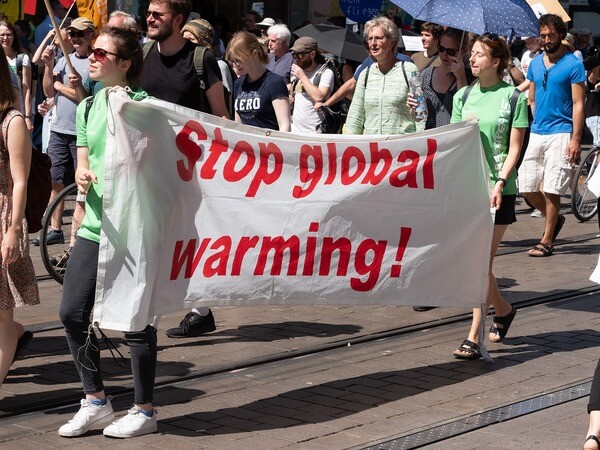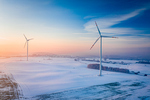News Release from windfair.net
Wind Industry Profile of
Bone of contention in Davos
The World Economic Forum is currently taking place in Davos, Switzerland, where leading international economists, politicians, scientists, social actors and journalists meet annually to discuss current global issues. In view of the unprecedented energy crisis into which the world has been plunged with the start of Russia's war of aggression against Ukraine, a major focus of the meeting is on the topic of energy and the advancing climate catastrophe.
While the Europeans had already led the way in 2020 with their ambitious European Green Deal, announcing that they would achieve "net zero" greenhouse gases in the EU by 2050 and thus become the first climate neutral continent, implementation was initially halted by the global COVID19 pandemic. Not everything went as planned in the U.S. either: Although President Joe Biden announced the country's return to the Paris Climate Agreement immediately after his election in 2020, it took him almost two years to push through his climate protection package against opposition from within his own party.
Since August 2022, however, the Inflation Reduction Act has been set. It aims to strengthen the domestic energy industry while promoting clean energy. The law represents the largest investment in combating climate change in the history of the United States. But it is precisely this that is now dividing opinion. In Europe, the protectionist features of the law are fuelling fears of a trade war in the energy sector between US and EU.
Now the IRA got prominent support in Davos: International Energy Agency's Executive Director Fatih Birol praised it at a panel session on Tuesday, according to CNBC: "The Inflation Reduction Act, in my view, is the most important climate action after the Paris 2015 agreement."

Working together against the climate catastrophe? Or is it all for themselves? (Image: Pixabay)
An EU response followed promptly. In a speech in Davos on Wednesday, EU President Ursula von der Leyen emphasised the cohesion of European countries in the difficult war situation and energy dependence on Russia, which has been drastically reduced in a joint effort over the past year: "And Europe's reaction to the war is the latest example in how our Union has pulled together when it matters the most. Take energy: a year ago, Europe had a massive dependency on Russian fossil fuels built up over decades. This made us vulnerable to supply squeezes, price hikes and Putin's market manipulation. In less than a year, Europe has overcome this dangerous dependency."
She went on to address the difficulties with the US: "But it is no secret that certain elements of the design of the Inflation Reduction Act have raised a number of concerns in terms of some of the targeted incentives for companies." But von der Leyen said they were working together to find a solution. Thus, she said, consideration had been given to how EU companies and EU-manufactured electric vehicles could benefit from the Inflation Reduction Act, too. "Our aim should be to avoid disruptions in transatlantic trade and investment. We should work towards ensuring that our respective incentive programmes are fair and mutually reinforcing. And we should set out how we can jointly benefit from this massive investment, for example by creating economies of scale across the Atlantic or setting common standards," she said.
That the last word has probably not been spoken in the relationship, however, was made clear by another point that can easily be understood as a declaration of war: "At the heart of the joint vision is our conviction that competition and trade is the key to speeding up clean tech and climate neutrality. And that means that we Europeans need to get better at nurturing our own clean-tech industry."
There is time until Friday for the two economic heavyweights to discuss their disagreements in Davos.
- Author:
- Katrin Radtke
- Email:
- press@windfair.net
- Keywords:
- Inflation Reduction Act, USA, EU, Davos, World Economic Forum, investment, Russia, Green Deal, IRA, IEA, energy, clean






















